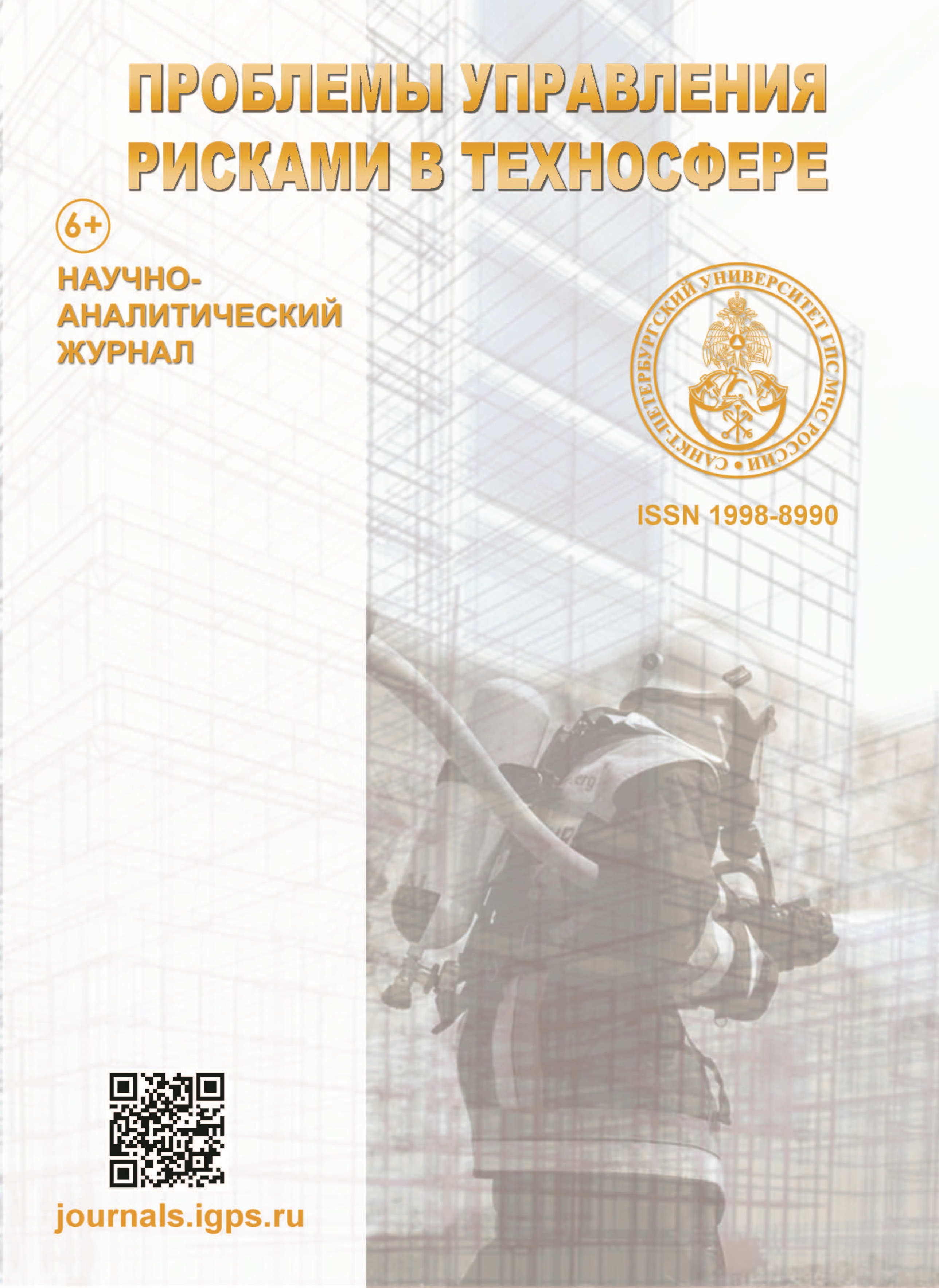Russian Federation
Russian Federation
Russian Federation
Using the example of the radiation accident at the Fukushima-1 nuclear power plant and subsequent measures to discharge tritium-containing aqueous coolant into the ocean, the adequacy of a new causal interpretation – the «triangle of emergencies», justifying and explaining scenarios of mutual transition of one type of emergency into another, as well as its graphical interpretation is considered. The issues of existing and possible consequences related both directly to the accident and to the discharge of the coolant are investigated. The results of calculating the change in the radioactivity of tritium in the volume of water planned for discharge for a period equal to ten of its half-life are presented. The prospects of applying the concept of an «emergency triangle» are considered, which are seen in the construction of an «emergency space», which is an array of emergency data collected for the purpose of analyzing, interpreting information, establishing cause-effect relationships and forecasting, as well as the principles of its formation.
occurrence of an emergency, development of an emergency, transformation of an emergency, emergency triangle, emergency space, radiation accident, Fukushima, tritium-containing coolant
1. Kondrat'ev N.D. Izbrannye sochineniya. M.: Ekonomika, 1993.
2. Ivahnyuk S.G. Kaskadnost' vzaimnyh vozniknoveniya i razvitiya chrezvychajnyh situacij – rezul'tat nauchno-tekhnicheskogo progressa // Problemy upravleniya riskami v tekhnosfere. 2022. № 1 (61). S. 67–77.
3. Khazai B., Daniell J., Wenzel F. The March 2011 Japan earthquake: analysis of losses, impacts, and implications for the understanding of risks posed by extreme events // TATuP-Zeitschrift für Technikfolgenabschätzung in Theorie und Praxis. 2011. T. 20. № 3. S. 22–33.
4. The Fukushima Daiichi accident. Vienna: IAEA, 2015. 262 p.
5. Steinhauser G., Brandl A., Johnson T.E. Comparison of the Chernobyl and Fukushima nuclear accidents: a review of the environmental impacts // Science of the total environment. 2014. T. 470. S. 800–817.
6. IAEA. Criteria for radionuclide activity concentrations for food and drinking water. Vienna: IAEA, 2016. 60 p.
7. Impacts of the Fukushima nuclear accident on fishery products and fishing industry / T. Morita [et al.] // Low-Dose Radiation Effects on Animals and Ecosystems: Long-Term Study on the Fukushima Nuclear Accident. 2020. S. 31–41.
8. The NUBASE evaluation of nuclear and decay properties / G. Audi [et al.] // Nuclear physics A. 2003. T. 729. № 1. S. 3–128.
9. Tritium, Radiation Protection Limits, and Drinking Water Standards. U.S.NRC, 2011. 7 p.
10. Fairlie I. Tritium hazard report: pollution and radiation risk from Canadian nuclear facilities // Greenpeace. June. 2007.
11. Zhuravlyov V.F. Raspredelenie, biologicheskoe dejstvie i uskorenie vyvedeniya radioaktivnyh izotopov / pod red. Yu.I. Moskaleva. M.: Medicina, 1964. S. 202–209.
12. Kalistratova B.C. Radiacionnaya medicina: ruk-vo / pod red. L.A. Il'ina. M.: IzdAT, 2004. T. 1. S. 604–613.
13. Kochetkov O.A., Monastyrskaya S.G., Kabanov D.I. Problemy normirovaniya tekhnogennogo tritiya // Saratovskij nauchno-medicinskij zhurnal. 2013. T. 9. № 4. S. 815–818.
14. Robin L., Hilland J., Johnson R. Metabolism and dosimetry of tritium // Health Phys. 1993. № 65 (6). P. 628–647.
15. Uroven' i harakter raspredeleniya tritiya v vozdushnom bassejne SIP / O.N. Lyahova [i dr.] // Tezisy dokladov V Mezhdunar. konf. Kurchatov, 2012. S. 30.
16. Rihvanov L.P. Radioaktivnye elementy v okruzhayushchej srede i problemy radioekologii: ucheb. posobie. Tomsk.: STT, 2009. 430 s.
17. The science and global standards behind Fukushima’s ALPS treated water // Reuters Plus, 2023. URL: https://www.reuters.com/plus/the-science-and-global-standards-behind-fukushimas-alps-treated-water (data obrashcheniya: 18.12.2023).







